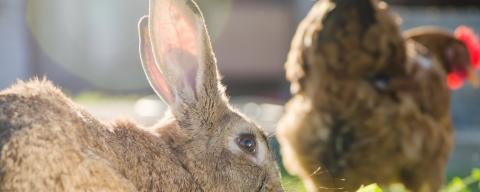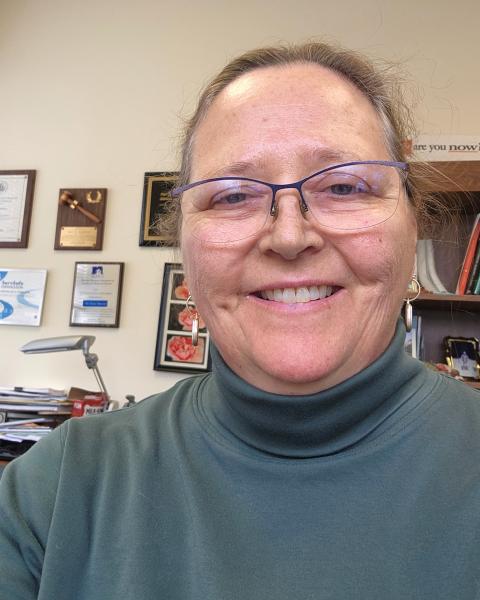What You Need to Know About the Sale and Purchase of Uninspected Poultry and Rabbits to Licensed NH Restaurants
This unique program allows NH poultry and rabbit producers to be able to sell up to 20,000 uninspected whole poultry and 1,000 uninspected whole rabbits to licensed NH restaurants. This program is only for licensed restaurants and does not include other licensed food establishments such as schools and nursing homes. The requirements can be found in RSA 143-A:14-17 and He-P 2313.01 – the New Hampshire Rules for Sanitary Production and Distribution of Food.
The program is a partnership of a few different agencies. The program is overseen by New Hampshire Department of Health & Human Services, Food Protection, with education provided by UNH Extension and registration handled by the NH Department of Agriculture, Markets and Food (NH DAMF).
Keep in mind that there are 15 self-inspecting communities in NH. Producers and restaurants in those jurisdictions need to contact their local authority directly for any additional requirements.
Poultry and rabbit producers who want to participate in this program must complete an education course offered by UNH Cooperative Extension every five years. The class covers the regulations regarding the selling of uninspected poultry and rabbits, safe processing of healthy birds and rabbits, sanitary facilities and equipment, cleaning and sanitation, temperature control, personal hygiene, recordkeeping, and steps to certification.
Other requirements include:
- Registering with the NH Department of Agriculture, Markets and Foods.
- Maintaining production records showing that no more than 20,000 whole poultry or 1,000 whole rabbits are sold to restaurants.
Labeling of the poultry and rabbits is important and required in case there is a recall or a foodborne illness is traced back to the farm where the product was processed. Each poultry and rabbit need to be labeled with the following information:
- The name and address of the farm where the poultry or rabbits are raised and processed.
- The date of slaughter. This is important because it helps with traceability in the event of a recall.
- Safe handling instructions as stated in the FDA Food Code Chapter 3-2. The label must be changed to reflect that the product is from an uninspected facility or farm.
This label helps provide information to NH DHHS Food Protection during an investigation of a foodborne illness outbreak linked to any poultry or rabbits supplied by the producer.
Managers and owners of restaurants have the right and responsibility to ask poultry and rabbit producers about their food safety practices. Some restaurants visit facilities from which they purchase food. It is important that things are done correctly and safely on the farm.
Restaurants can only purchase uninspected whole poultry and whole rabbits from producers that meet the requirements listed above for producers. Restaurants are required to do their own carving of the product into pieces. The approved list of producers is available on the NH DAMF website.
Restaurants must maintain receipts of purchase of uninspected poultry or uninspected rabbits for 90 days, which includes the following information:
- The date of purchase as well as the name, address, and phone number of the producer. Ask the producer for receipts for proof of purchase.
- Menu items containing uninspected poultry and rabbits need to be labeled with the following statement: “This product has been raised and processed on a New Hampshire farm and is exempt from state and federal inspection.” This needs to be in at least 10-point font and in a color that provides clear contrast to the background.
Producers and restaurants can contact the New Hampshire Department of Health and Human Services, Food Protection section, or UNH Cooperative Extension if they have any further questions.
Do you want to learn more about upcoming classes for farms and producers? Sign up for the Food Safety for Poultry & Rabbit Producers newsletter.


